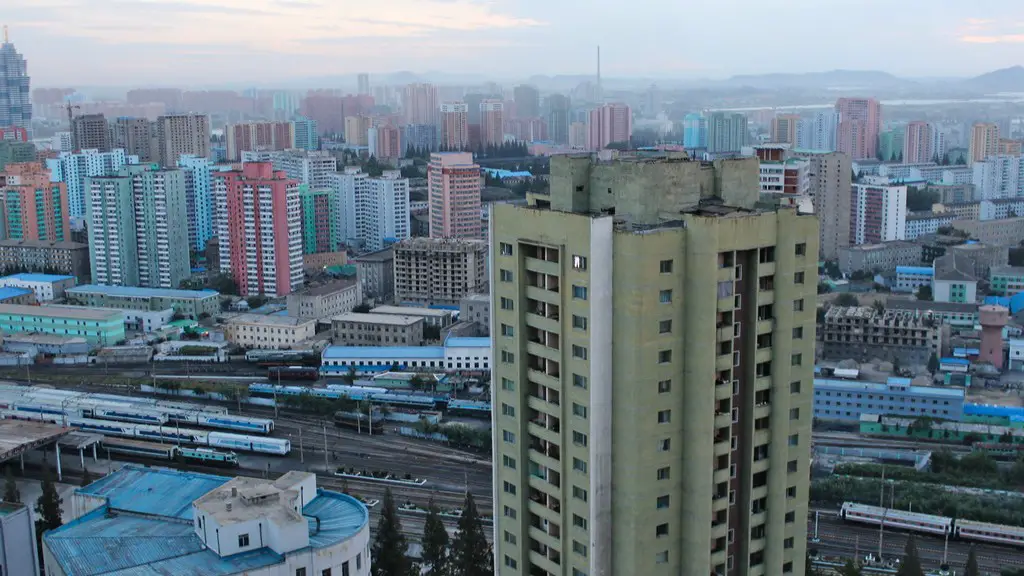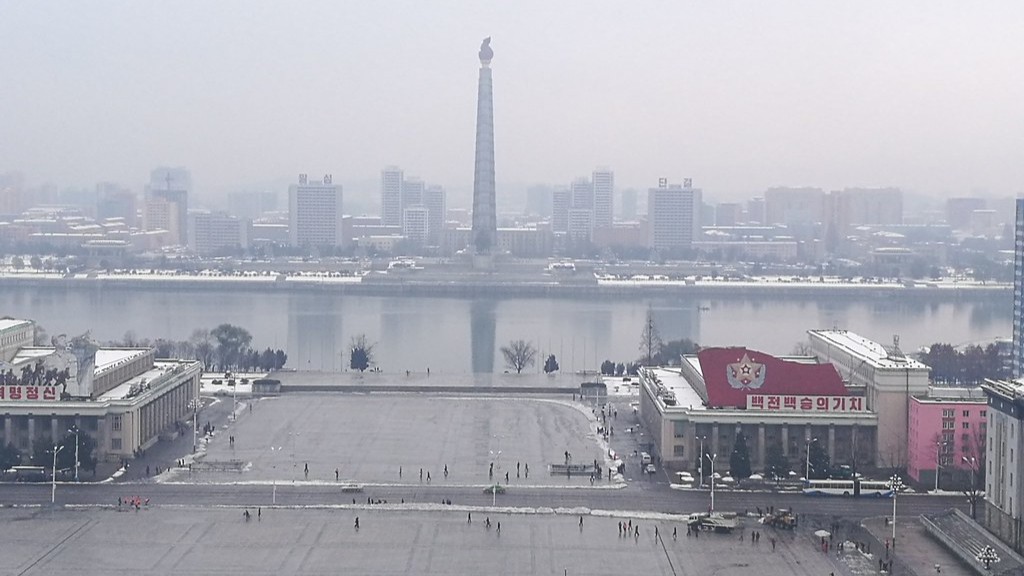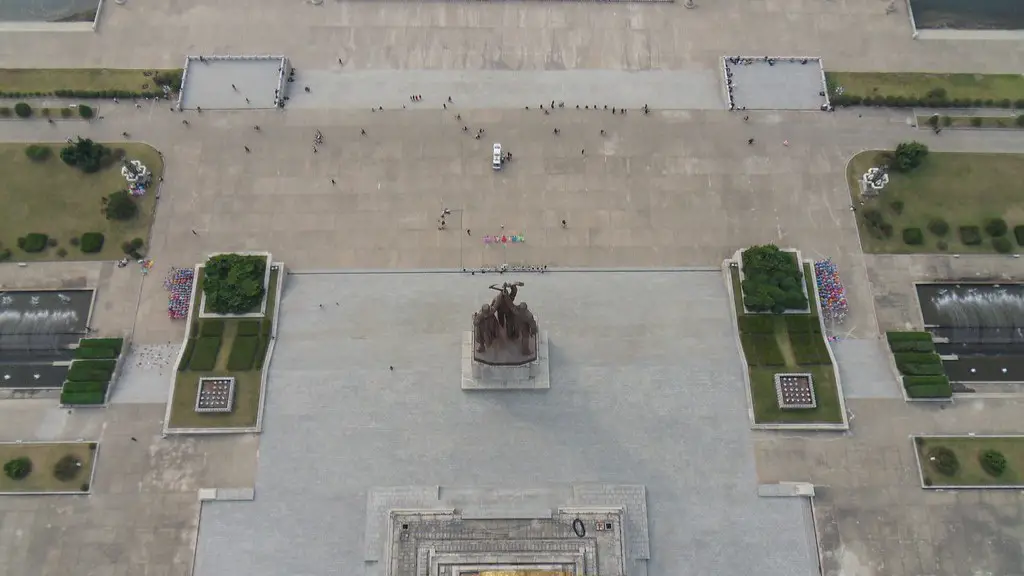North Korea has been in the news for all the wrong reasons– including its nuclear weapons program. Since its first underground test detonation in 2006, North Korea has tested five more nuclear weapons, with the most recent test taking place in February 2017. North Korea’s pursuit of nuclear weapons capability is a major international concern. This article explores why North Korea insists on having nuclear weapons and what that means for the region.
Many experts believe that North Korea’s push for nuclear weapons is rooted in its desire to ensure regime survival. As David Kang, director of the Korean Studies Institute at the University of Southern California, told The New York Times in 2017, “North Korea’s goal is to stay in power, and they see nuclear weapons as a kind of ultimate guarantor of their survival.”
Kim Jong Un and the North Korean leadership likely also see nuclear weapons as a deterrent against any sort of foreign military action. As Terry McCann, a security analyst with the Christian Science Monitor, pointed out in 2016, “North Korea’s goal is to make an attack on them so cost prohibitive that the attacker will never attempt it.”
For North Korea, having nuclear weapons also provides a way to gain leverage in international diplomatic negotiations. To that end, it has successfully leveraged its nuclear weapons testing over the past decade in order to extract concessions from other countries like the United States and China. This has allowed North Korea to gain access to the resources it needs to fund its nuclear program and sustain the regime.
The ongoing pursuit of nuclear capability also acts as a distraction from the regime’s domestic problems. As John Feffer, co-director of Foreign Policy in Focus, notes, “The North Korean government is an absolute monarch with a hereditary dynasty. All documents originate from the Central Committee, which in turn is chaired by Kim Jong Un. The North Korean Government needs a distraction to avert its population from its own problems.”
In addition, North Korea has traditionally seen itself as a victim of imperialism and is hence motivated by a sense of wounded pride and a wish for prestige. This can be seen in the country’s rhetoric and its attempts to present a narrative of itself as a nuclear power that is a force to be reckoned with in the international arena.
It is clear that North Korea’s pursuit of nuclear weapons is driven by a mixture of factors, some of which are linked to insecurity and power, while others have more to do with international prestige. Whatever the motivations behind its nuclear ambitions, the fact remains that North Korea’s nuclear capabilities are a major threat to international peace and security.
History of North Korean Nuclear Program
The North Korean nuclear program can be traced back to the 1950s, with the Soviet Union providing the initial technical and operational assistance. Kim Il Sung declared that North Korea should pursue its own nuclear weapons capabilities in 1965 and it is widely believed that the country began to develop its own nuclear capabilities soon after. However, international pressure meant that North Korea had to suspend its nuclear program in the mid-1990s.
However, North Korea continued to develop its nuclear capabilities in secret until it announced in 2003 that it had reactivated its nuclear research program. The country carried out its first nuclear test in 2006 and has conducted multiple tests since then, with the most recent taking place in February 2017.
North Korea and South Korea Peace Negotiations
North Korea’s nuclear program has been the subject of a number of international negotiations, most notably the Six-Party Talks which included representatives from China, Japan, Russia, South Korea, the United States, and North Korea. These talks, which took place between 2003 and 2009, have so far failed to achieve any meaningful results.
More recently, North and South Korea have taken tentative steps towards negotiations for a possible peace treaty. However, this process is complicated by the fact that North Korea has yet to give up its nuclear ambitions. North Korea has made it clear that it will not give up its nuclear weapons until it has achieved its goals of achieving international recognition and security guarantees from the United States.
Role of China and the United States
China and the United States have been central players in the negotiations over North Korea’s nuclear program. China, in particular, has been a key ally of North Korea since the end of the Korean War and it continues to provide economic and political support to the regime.
In the United States, the Trump administration has taken a hard line stance on North Korea’s nuclear program and has issued a number of strict economic sanctions against the regime. In addition, the US has engaged in a number of military exercises in the region. The US has also been engaged in a number of diplomatic initiatives, such as the recent summit between President Trump and North Korean leader Kim Jong Un.
Impact on the Region
North Korea’s nuclear program has had a destabilizing effect on the region. In particular, the country’s repeated nuclear tests and threats of military action have led to increased tension in the region and a heightened risk of armed conflict.
The region is also facing the potential for a humanitarian crisis. The United Nations has warned of the potential for mass starvation and displacement if North Korea continues to pursue its nuclear ambitions and if a conflict were to break out in the region.
Implications for International Security
The international community is deeply concerned by North Korea’s nuclear program and its impact on regional and global security. A number of countries have called for North Korea to abandon its nuclear weapons program, while others have called for coordinated international action to counter the threat that North Korea’s nuclear ambitions pose.
The United Nations has imposed a number of sanctions and other measures against North Korea in an effort to pressure the country to cease its nuclear ambitions. In addition, the UN has called for a return to negotiations and has urged North Korea to comply with its obligations under international law.
Conclusion
North Korea’s pursuit of nuclear weapons is a major concern for the international community. Its nuclear ambitions have the potential to destabilize the entire region and have wide-ranging implications for global security. The international community must continue to work together to find a way to persuade North Korea to abandon its nuclear ambitions.




